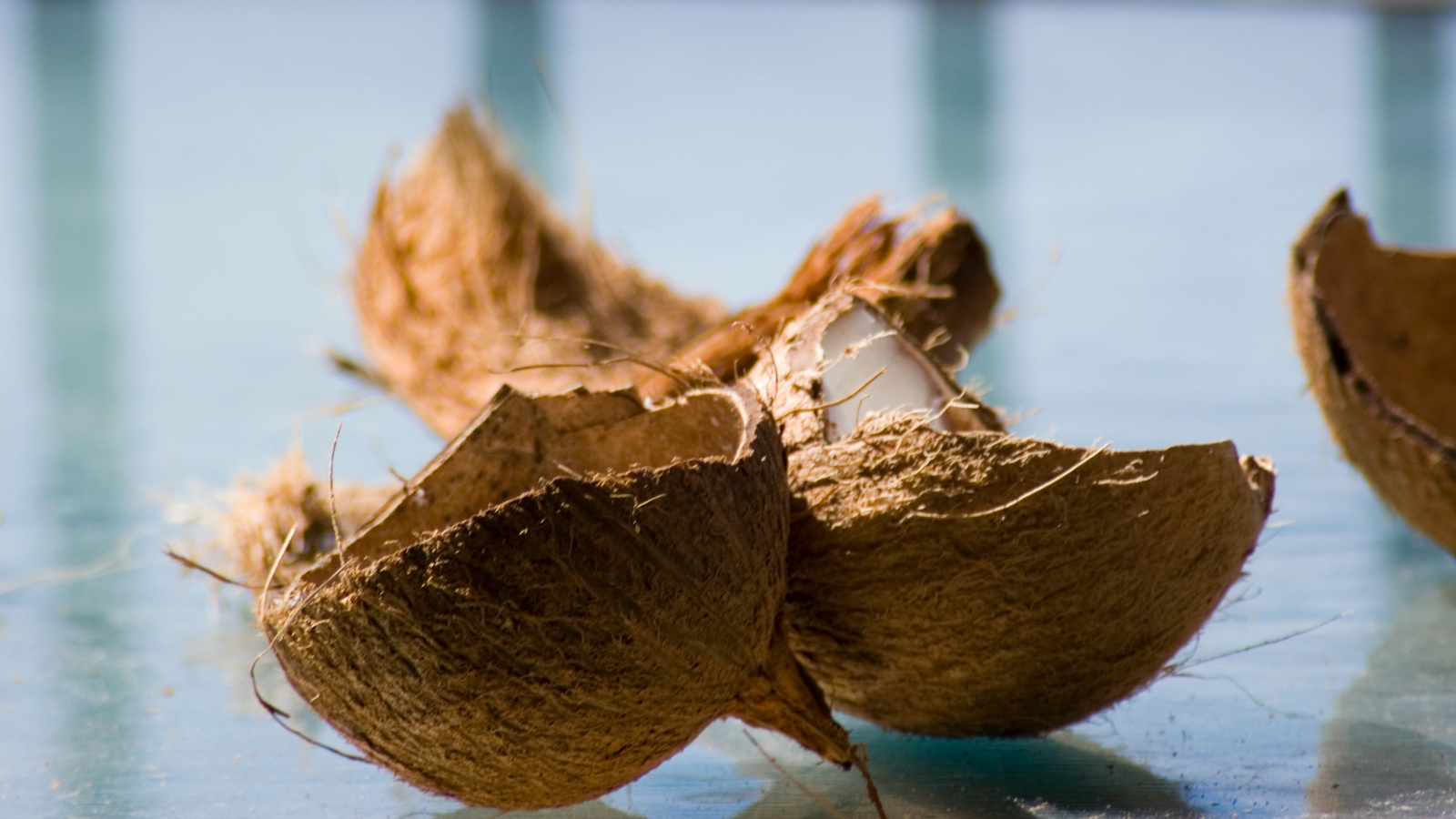Here’s a triple header of coconut questions:
Q. Dear Umbra,
My wife and I have started using coconut oil a lot. I know demand for palm oil is proving horrible for the tropical forests of the world, and was wondering if the same is true for coconut oil.
Mark J.
Q. Dear Umbra,
Before I jump on the Most Wondrous and Magikal Coconut Oil Bandwagon, I’d like to know whether it’s going to end up being as horrible for the environment as palm oil? I don’t want to climb on board without knowing whether I’m indirectly causing harm to some endangered puffins or sea turtles somewhere.
Janice R.
Winnipeg, Canada
Q. Dear Umbra,
I use almond flour for the majority of my cooking and baking now, but I worry about the water-intensive process of growing almonds. Coconut would be an alternative for most recipes, but I know nothing of the environmental impacts of its production cycle. Would using coconut flour be just as bad?
Valerie
Albany, Georgia
A. Dearest Mark, Janice, and Valerie,
Occasionally, readers from all across the land come together to speak with one voice. Today, that voice is unmistakable in its curiosity about the oh-so-delicious, oh-so-trendy coconut and its byproducts: oil, water, sugar, and flour among them. In recent years, the tropical fruit has become quite the darling of the green set: Environmentalists tout coconut oil, especially, as a natural alternative for everything from body lotion to lip balm to personal lube. But as always, it’s wise to take a closer look at the latest wonder food before stocking the pantry. Let’s crack this nut open, shall we?
You three are far from the only North Americans getting high on coco’, by the way: The use of coconut oil grew 780 percent between 2008 and 2012, and the demand for coconut water jumped 168 percent between 2010 and 2013. And if an informal survey of my local yoga-goers and farmers market-shoppers is any indication, the boom is still going strong. So what kind of impact are we having?
The first consideration: Everyone’s favorite hairy-on-the-outside, succulent-on-the-inside fruit (sorry, kiwi) comes to us from the tropics — Indonesia, most often, plus the Philippines and India, and to a lesser extent, Brazil, Sri Lanka, and Thailand. So unless you’re currently lounging on an idyllic beach — you lucky so-and-so — that coconut product was shipped a considerable distance to reach you, with all the transportation-related carbon emissions that entails. Locavore eating it’s not.
Then there’s the growing of the trees themselves. Fortunately, coconut farming isn’t linked to the kind of deforestation that makes palm oil so devastating to local ecosystems. But those lovely coconut trees can still be grown in a monoculture, which hurts tropical biodiversity and soil quality.
And finally, there’s the human rights side of things. As with other cultivators of the tropics (those who produce chocolate, cashews, and coffee, to look just at the Cs), coconut farmers very often toil in terrible poverty — as high as 60 percent of them in the Philippines. Coconut water alone sells for a couple of bucks or more per bottle, but the farmers behind it make as little as 12 cents per coconut. Kind of a bitter system, huh?
The good news, Mark, Janice, and Valerie, is that careful shopping can alleviate many of coconut’s downsides. Organic products reduce the use of pesticides and synthetic fertilizers, as per usual, and are worth seeking out. Even better, Fair Trade–certified items help ensure farmers aren’t getting ripped off. You can find oils and flours that tick both of these boxes. This brand of coconut water makes a point of investing in sustainable practices with its partner farmers, and this one slashes its shipping footprint by selling dried coconut powder instead of heavier, bulkier bottles.
That said, foods that come to us exclusively from faraway lands are never going to win any green awards. Sometimes, this is a tradeoff we must consider carefully. Take Valerie’s almond flour: It’s true that almond cultivation uses lots of water, but not so clear whether that makes it better or worse for the planet than exotic coconut flour. If it’s gluten-free flour you seek, you might want to check out some of the closer-to-home alternatives, such as brown rice flour, oat flour, or millet flour.
Coconut oil involves a similar tradeoff, considering that other oils have their own environmental impacts to consider: Olive oil can also have a significant shipping footprint, for example, and canola oil is often made from GMO crops. Some of the other slippery spreads that hail from our own continent (hazelnut, sunflower) might not be ideal for all the myriad uses coconut oil claims, either. So I’m not saying we must swear off coconut oil, but as always, shop wisely and use only what you really need.
As for the other coconut goodies, such as milk, water, and sugar, the best approach is to treat them as indulgences, and indulge only occasionally.
Now if only we could figure out how to make a magikal multipurpose oil out of locally grown turnips.
Equatorially,
Umbra



